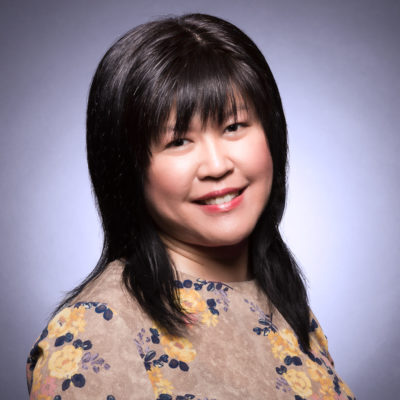I CAN SEE YOUR VOICE
Recently I attended an event hosted by a women’s leadership group, of which I had been the founding co-chair. It was the signature annual event. I have not been closely involved with the group over the last several years as it was well stood up and my attention had shifted to other global efforts. However, as is my motherly instinct to see offspring succeed, I attended by Zoom, with pride, to witness and celebrate the group’s growth and evolution.

The topic was entitled, “A Conversation About Dismantling Barriers to Equality”, a frequent topic these days amongst almost every sector. The women on the panel and the moderator were of diverse ethnic background, each with senior roles in the land development space. But for me the most memorable point of the evening was when Vivian Kwok told her story, of growing up being ostracized for her strong Chinese accent. English is not her first language. Vivian, in that moment, on that panel did something wonderful – she made herself vulnerable in front of a (virtual) crowd, using her voice to help others know the pain she experienced.
It all got me thinking, I remembered my first two weeks as a first year student in Canada, with my heavy Trinidadian accent. I remember the tears I sprouted when I got on the phone to my Mum to beg her to bring me back home because no one understood me. My mother’s tough love parenting response was – well you speak Spanish and you speak French – speak Canadian to them … and “no, I done pay for you to be up there and you cann’ come home until the holidays.” So with a sharp ear and a quick mind to the task I swiftly practiced and perfected Canadian. So despite being educated in the British Cambridge Secondary Ordinary and Advance Levels of education, I now had to consider my mother tongue a disadvantage. When people saw my voice they did not see me.
I wonder how much of a barrier to my career or even my dating life (and subsequently my parenting life) would have been different had I held on to my accent. Would I have received those co-op jobs, would I have been invited to be a speaker or a panelists to the gradually higher profile events? Perhaps not – even though my voice is not all of me. How many young men and women, are refused opportunity because of their voice, their accents or their colloquialisms? A voice can conjure up a stereotype. How many people, because it takes more concentration to listen to someone with a different accent or different intonation from ourselves, will by-pass a candidate or dismiss a meeting.
Here today, as a successful executive, I have adopted my second language (Canadian) when I speak in public, in the workplace, or when I go shopping. I guess that is what they mean when they talk about a naturalized Canadian. That makes me a little sad, and in fact I am always envious when I meet fellow Trinidadians whose recognizable accent drifts to my ears. I have had to hide a part of myself. I had not been bringing my authentic self to the workplace. I haven’t lost my accent – I just don’t use it regularly. The recent TV game show “I See Your Voice” monetizes the stereotypes of what a great vocalist should look like. Those folks lip-syncing, That could be me.
When we say we want to give voice to young leaders and bring diversity to the decision making tables it means not just skin colour alone. Vivian Kwok, is a champion, she is a strong communicator, she is an eternal professional, passionate to mentor and support other women to lead. Her voice has been both her bane and her weapon. I see you Vivian and all the other women who are continuing to have their voice be heard not just seen. You are my hero.

